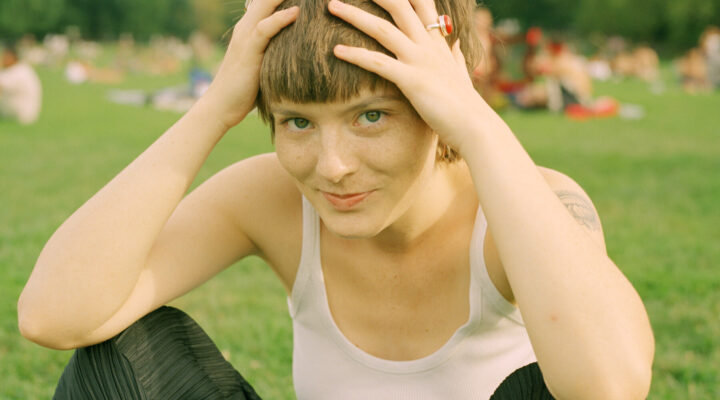Our MUBI Picks
MUBI has an ever-changing curation of films. “From cult classics to modern gems and from famous directors to promising new makers. Films from all over the world.” The people of MUBI have been kind enough to give all Subbacultcha members 3 free months of MUBI membership. To help you navigate through the vast and manifold database, we popped some popcorn and selected five picks to get started. Among which: the exclusive streaming premiere of Charlotte Wells’ multi award-winning Aftersun.

Sign up here and get 3 months free months of MUBI.
Aftersun (2022)
by Charlotte Wells

The debut film by Charlotte Wells, starring Paul Mescal and Frankie Corio, is a quietly-crushing summer daydream. In Aftersun Sophie reflects on the joy and sorrow of a holiday in a Turkish resort she took with father. Memories and reveries blend into a new reality as Sophie revises their relationship. The culmination of the spoken and the unspoken on the fading holiday hits like a brick. The semi-autobiographical film is a hazy memory of both oppressive weight and featherlight freedom. Also, Aftersun arguably contains the most heartbreaking rendition of R.E.M.’s ‘Losing My Religion’ ever and a stunning score by Oliver Coates.
Sweet Bean (2015)
by Naomi Kawase

Zooming in on a small story, Naomi Kawase shows us the fineness and simplicity traditional food recipes can contain. Sweet Bean reminds you of the rewardful moments in life, where taking risks and giving the benefit of the doubt to others can lead to an expansion of your own perspective. This slow-paced, sweet movie uses the traditional sweet bean paste recipe to bridge traditions from the past and present: a subtle study about the relationship between people, emphasising the transitional role of food. A lesson on how to open up and make place for the knowledge and experience of strangers around you.
My Life as a Courgette (2016)
by Claude Barras

A story full of wisdom, beautifully written by Céline Sciamma and visualised by the art of stop-motion animation, My Life as a Courgette tells a story of nine-year-old Icare, nicknamed Courgette, being sent to a children’s home. Watching young people dealing with abandonment and the survival of abuse, tenderly told through empathy and sense of humour, can function as a form of healing. Through the eyes of children dealing with difficult, sometimes intangible emotions, the story comes together gorgeously and left us in a state of comfortable sadness. “Sometimes we cry when we’re happy, isn’t that right?”
The Gleaners and I (2000)
by Agnès Varda

Infectious enthusiasm, forgotten corners of the French countryside and plenty of sidetracking. The Gleaners and I is a top-10 level documentary about the lives of gatherers, recyclers, and treasure hunters—whether born out of necessity, activism or tradition. Varda does the doc’s title justice and is far from a passive observer. Her self-reflection and joie de vivre shine through to both sides of the screen. Aside from its direct subject matter, The Gleaners and I is a depiction of the intimacy and opportunity of digital filmmaking. “Varda posits herself as a kind of gleaner of images and ideas, one whose generous, expansive vision makes room for ruminations on everything from aging to the birth of cinema to the beauty of heart-shaped potatoes.” – The Criterion Collection.
Zero Fucks Given (2021)
by Emmanuel Marre & Julie Lecoustre

The main character in Zero Fucks Given, Cassandre (played by Adele Exarchopooulos), seems to have no desire to adhere to societal expectations. In conversations with colleagues, family and friends her critical and contrarian thoughts reveal themselves. She questions social structures like the working conditions of the low-cost airline she works for, romantic relationships she is not seeking, and social-economic phenomena like… Dubai. Cassandre’s only objectives are seeking hedonistic pleasures: partying and traveling, constantly pushing it a little further. Her friends wonder if her nihilism and indifferent attitude towards most things are a consequence of her commitment issues. If you read all the hidden signs, subtly positioned in mundane stills by the directors, it becomes clear what Cassandre is running away from. Though, the audience gets left with a question: are you also disillusioned?



